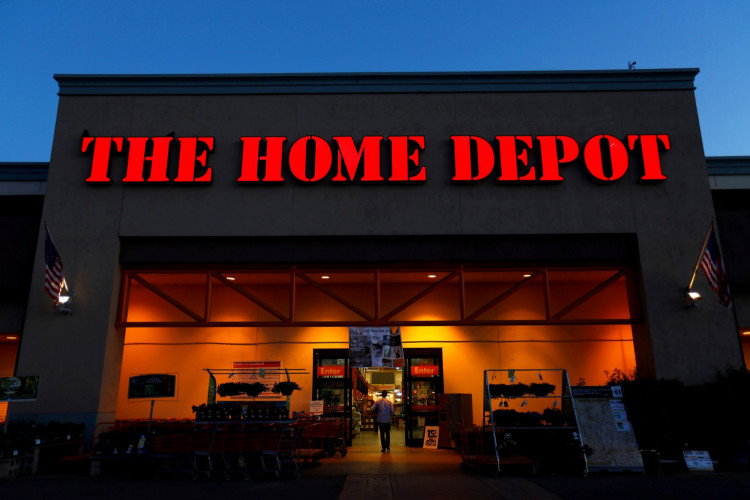Home Depot, the leading U.S. home improvement retailer, is bracing for subdued growth in 2024 as it navigates a challenging economic landscape marked by persistent inflation and shifting consumer spending patterns. The Atlanta-based company anticipates a mild decline in demand for home renovation projects, projecting comparable sales to dip by about 1% for the year, contrary to analysts' expectations of a slight increase. This forecast emerges amidst a backdrop of consumers prioritizing essential repairs and maintenance over extensive remodels due to elevated food prices and borrowing costs.
In the fourth quarter, Home Depot experienced a more significant sales drop than anticipated, with revenue falling nearly 3% year-over-year, despite surpassing Wall Street's earnings and revenue estimates. The downturn in sales reflects a broader trend of consumers adopting more typical spending habits, as noted by CFO Richard McPhail, with particular resistance to high-ticket items like electronics and furniture. This shift has been compounded by declining lumber prices and rising interest rates, further straining the business.
Despite these challenges, Home Depot remains optimistic about a return to growth, with McPhail highlighting the receding pressures experienced in 2023 and the market's gradual stabilization. The company plans to open approximately a dozen new stores in the coming year, aiming to capitalize on the eventual normalization of demand conditions. However, the retailer's outlook for 2024 remains cautious, forecasting a modest 1% increase in total sales, including an additional week, slightly below the 1.6% growth anticipated by Wall Street.
The recent performance and projections underscore Home Depot's transition from the pandemic-induced surge in home improvement spending to a period of moderation. The retailer has seen a pullback in consumer spending on discretionary items, leading to a decline in both average ticket and customer transactions in the fourth quarter. McPhail attributed this to higher borrowing costs deterring larger projects and a more typical pricing environment compared to the inflated costs experienced during the height of the pandemic.
Home Depot's shares reflected the market's reaction to the earnings report and 2024 outlook, experiencing a drop in premarket trading. As the company navigates the evolving economic conditions, it remains focused on maintaining operational efficiency and adapting to the changing consumer landscape. The retailer's resilience and strategic adjustments will be crucial in weathering the headwinds and positioning itself for future growth as the market stabilizes.
As of the close of the last trading session, Home Depot's market valuation stood at approximately $360 billion, with shares showing modest gains in line with the broader S&P 500 index. The company's performance and strategic direction in the coming year will be closely watched by investors and industry analysts as it adapts to the post-pandemic retail environment.





